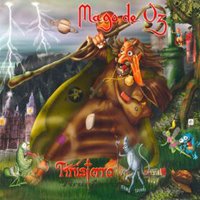What the hell is this crap? I’ve been listening to this song for three minutes already and they haven’t started singing yet? How could you listen to a twenty-minute song? Would you get bored out of your mind? This sounds like happy little elf music.
OK stop right there! Don’t even bother to continue. I know what you’re going to say and quite frankly I’ve heard enough. It’s not an easy life being a fan of such a ridiculed genre of music. Besides a brief moment in the early to mid-seventies the very name “Progressive Rock” has been a curse word in the music industry. Why do we like Prog? Are we just simply trying to be different? Are we just all really insane? There’s got to be more to it. There will always be a place in the world for Prog Rock. I’m going to tell you why.
Nothing was cooler then Prog in the early 70s. If you owned a copy of Yessongs you really knew you were listening to the best music ever made. That’s just how things were. Then why did critics hate it so much? Any avid fan of the genre will tell you that when it comes to music, less isn’t always more. It all goes down to what you expect from music. To understand why we like this music and why the rest of the world hates it you really just have to break it down to expectation.
The average person listens to music on a very simple level. They are listening for either a repetitive rhythm that they can dance to, or they want a repetitive melody that isn’t too difficult to recall. They might not know it, but all the pop music they hear on the radio uses traditional tonality and keys that have been used in the western world for countless centuries already. It fallows a very strict format and never strays from it. To them, music sounds ‘good’ if it falls into this style. If they don’t hear a scale that is familiar to them, they immediately state that the music sounds ‘bad’ or ‘out of key’ (not knowing technically what out of key means). If you played a modern piece of pop to somebody who’s played nothing but traditional Japanese music their entire life they’ll probably call Brittany Spears nothing but atonal random crap.
The average Prog fan has a wider spectrum of allowed sounds they find listenable. Song structures can change, the tone colour can be different and the whole thing might be played without a strict tonal centre, still they find it enjoyable.
Yes’ keyboardist Rick Wakeman always says that to be able to properly break the rules you have to master the rules first. It’s true that the average Prog musician may be more trained in the rulse of music, but their knowledge allows them to really explore a creative universe that is not open in popular music. A Prog band uses longer song lengths and complex song structure to bring more emotional possibilities to the music.
A critic might say that Prog Rock is void of any emotion. If you know anything about Prog, you’ll know that it’s really the most emotional music ever. A song like Close to the Edge may be hard to listen to at first, but any one of the song’s many fans will tell you that it brings them to tears every time. Prog Rock creates a possibility of making powerful music by breaking the rules.
I’m not sure if this was a well written piece, but I hope that my argument has at least struck a chord with you. You listen to this genre because you expect more from music. You want music to effect you and change you. Prog is so many things, it’s fun and emotional. It’s just as often catchy and melodic as it is jarring and atonal. It’s Rock music without the rules. It’s diverse and has no boundaries. For all these reasons, Prog has survived all these years of criticism and hatred to be a true global genre. It definitely is underground, but it’s underground everywhere.
Don’t give up on the music you love because everyone else hates it. Just know that you listen to some of the most wonderful music ever made, and it’s all yours.
Long live Progressive Rock, may it live forever.



 There has been so much already written about
There has been so much already written about